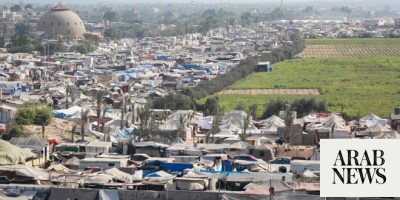The National Secretary of APC made the claim when confronted with NBS’ latest data on Nigeria’s inflation on the Channels Television’s primetime show, ‘Politics Today’, on Wednesday evening.
The National Secretary of the ruling All Progressive Congress (APC), Surajudeen Basiru, said Wednesday that Nigeria’s inflation rate, as given by the state-owned National Bureau of Statistics (NBS), is exaggerated.
The lawyer and former senator made this claim on the Channels Television’s primetime show, ‘Politics Today’, on Wednesday evening.
He said it when confronted with the NBS data, insisting that Nigeria’s inflation rate had slowed down over the past four months.
“I am aware that NBS is currently working on analysing and rebasing our GDP, and when the figures come out, then you can now be talking of a correct figure.
“I know that there are inflation challenges, but they are not up to that level,” he said.
The top APC officer argued that the NBS data shown to him did not reflect the agency’s current inflation rate.
NBS’ latest report on inflation said Nigeria’s inflation rate stood at 34.19 per cent as of June.
PREMIUM TIMES reported that with the June report, Nigeria’s inflation rate rose for the fifth consecutive month as Nigerians grappled with increased cost of living.
The Nigerian government has been scrambling to implement extraordinary measures to address the relentless rise in food prices, but these efforts have yet to yield any significant impact.
Earlier this month, the Minister of Agriculture, Abubakar Kyari, confirmed that the President Bola Tinubu administration has suspended duties, tariffs, and taxes on the importation of major food items such as beans, wheat, and husked brown rice.
Mr Basiru, who served as Attorney-General and Commissioner for Justice in Osun State, blamed the current economic hardship and food insecurity on global events such as the Middle East crisis and the COVID-19 pandemic.
He argued that Nigerians are not the only victims of the economic hardship, maintaining that it is a global problem.
Mr Basiru also spoke about the upcoming nationwide ’10 days of rage’ protest organised by young Nigerians, which will take place from 1 to 10 August, to express their grievances over hunger and insecurity in the country.

Sign up for free AllAfrica Newsletters
Get the latest in African news delivered straight to your inbox
Success!
Almost finished…
We need to confirm your email address.
To complete the process, please follow the instructions in the email we just sent you.
Error!
There was a problem processing your submission. Please try again later.
The APC chief said the protest is politically motivated and has nothing to do with the economy.
However, he said President Bola Tinubu’s administration was working hard to address issues regarding inflation and pleaded with Nigerians to be patient instead of embarking on the “10 days of rage” planned protest on 1 August.
Pat Utomi cautions APC
Responding to Mr Basiru’s claims, Pat Utomi, a political economist and professor who also appeared on the TV programme, cautioned the ruling APC against stifling the voice of Nigerians.
He advised that people be allowed to exercise their right to protest.
He said protests are allowed in every democratic setting, encouraging freedom of expression.
However, Mr Basiru insisted that the APC has the right to query the basis of the protest.
He also challenged Mr Utomi to bring workable solutions to address Nigeria’s woes instead of encouraging Nigerians to protest.
Mr Utomi said part of the solution includes allowing Nigerians to work together to move the country forward. He also said Nigeria underutilises its intellectual resources in governance.
He proposed reforms in the Nigerian National Petroleum Company Limited (NNPCL) and advised the government to cut down the cost of governance and channel the resources to alleviate hunger.













